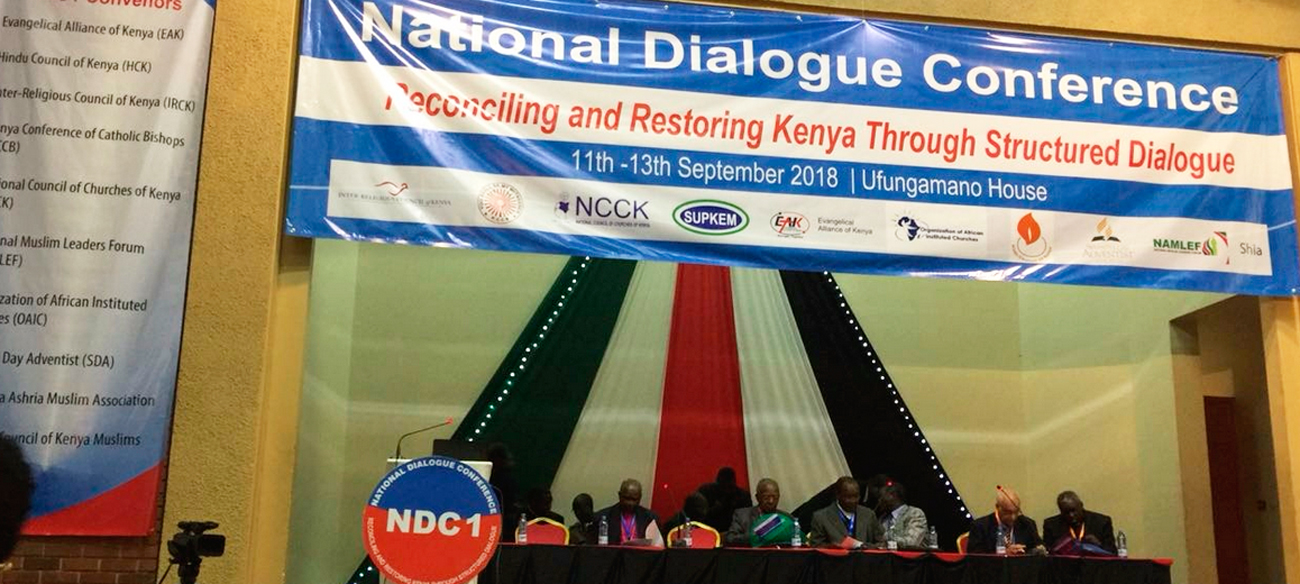Kenya
From 2017 to 2020, Inclusive Peace provided a mixture of strategic and technical support, critical feedback, facilitation, and mediation, which also contributed to subsequent political reform processes after the 2017 electoral crisis.
From December 2017 to March 2020, Inclusive Peace accompanied key Kenyan actors in their work to sustainably tackle the causes of political violence that has repeatedly affected the country during election cycles since the mid-1990s. These actors included religious leaders, other civil society actors, women, youth groups and networks, as well as government entities and the diplomatic community.
We provided a mixture of strategic and technical support, critical feedback, facilitation, and mediation, drawing on our comparative knowledge and peace process support experiences. We were also able to provide substantial contributions to the current political reform process after the 2017 electoral crisis in Kenya with a discrete backseat approach that respects local ownership and local leadership.

